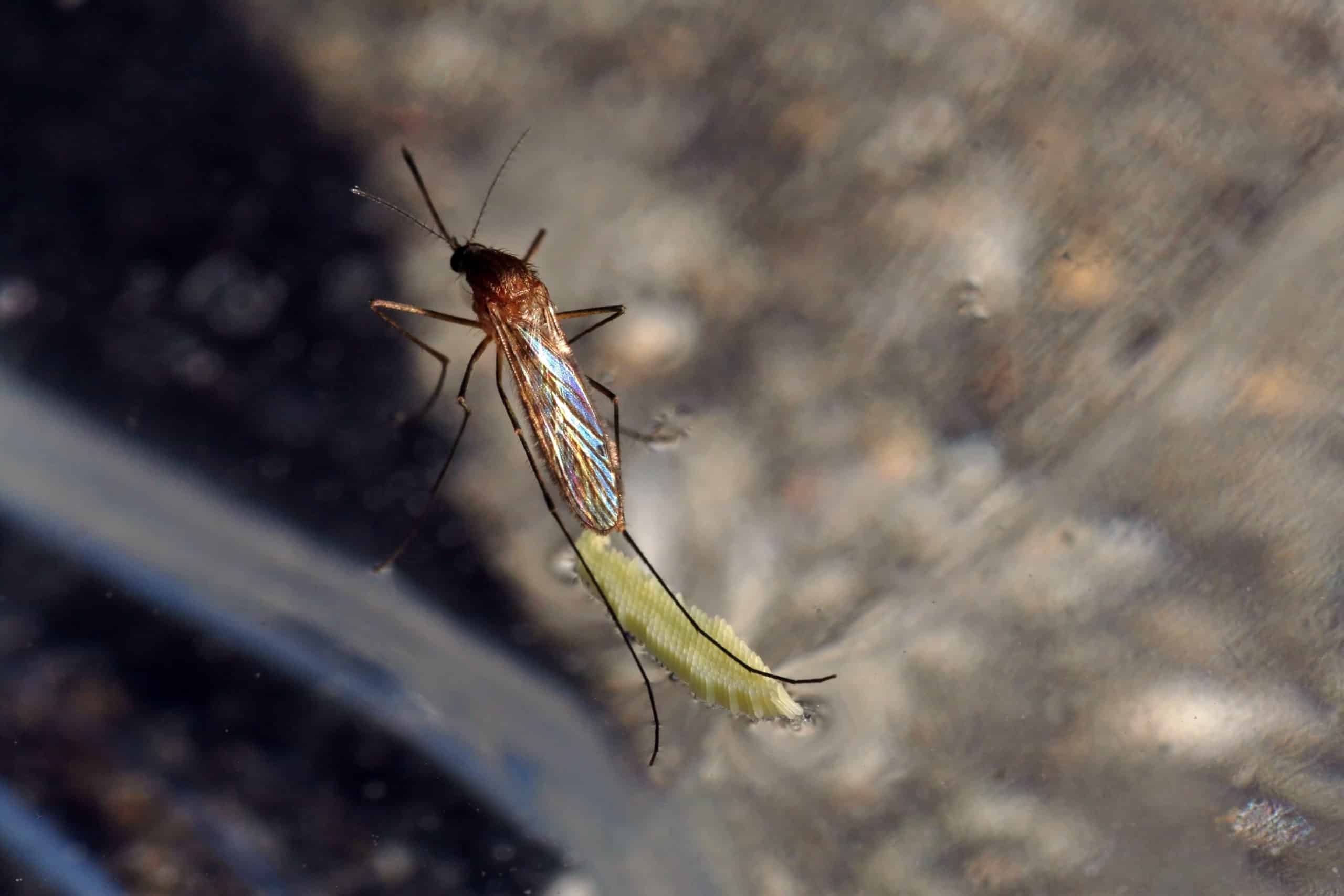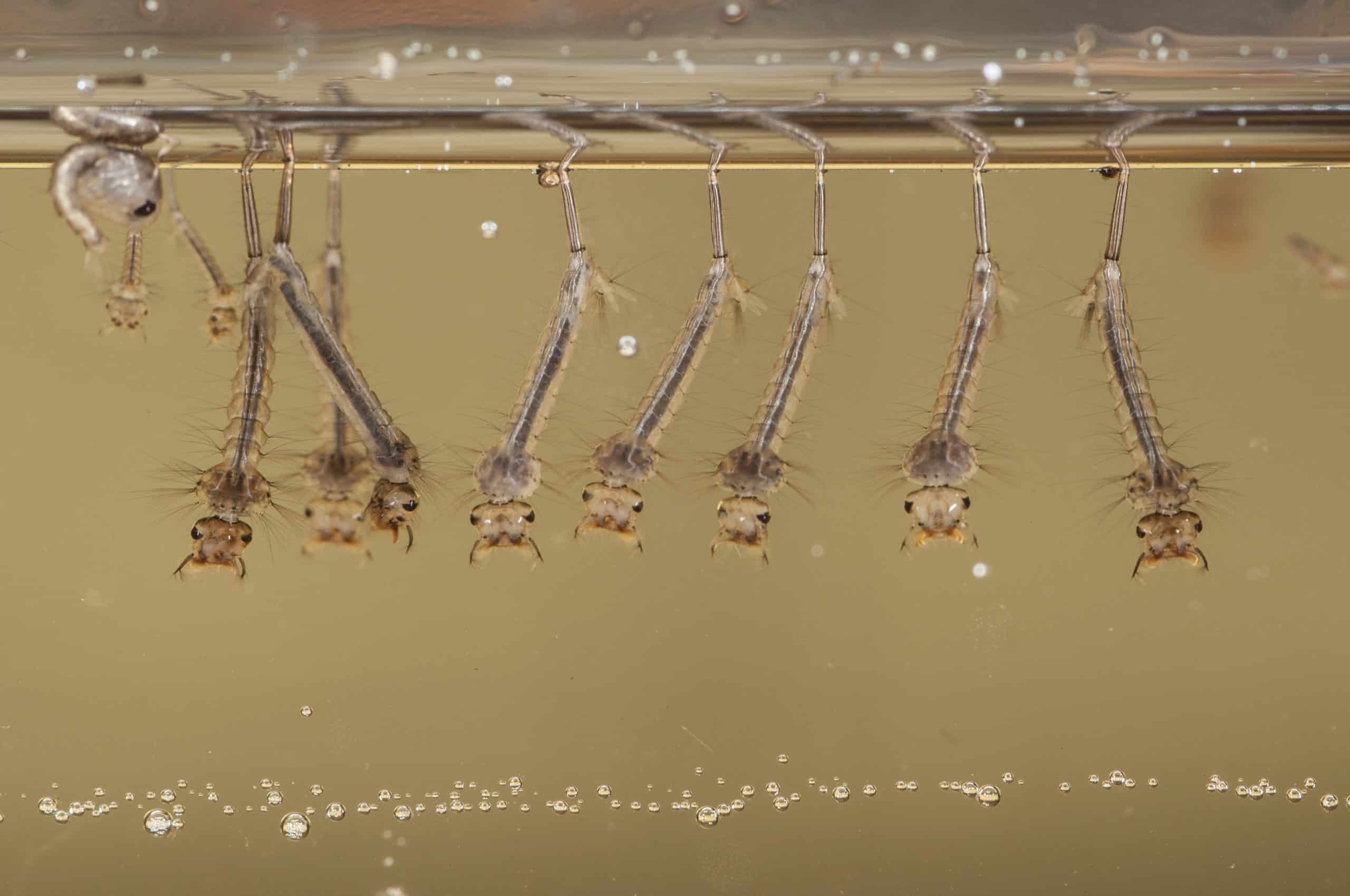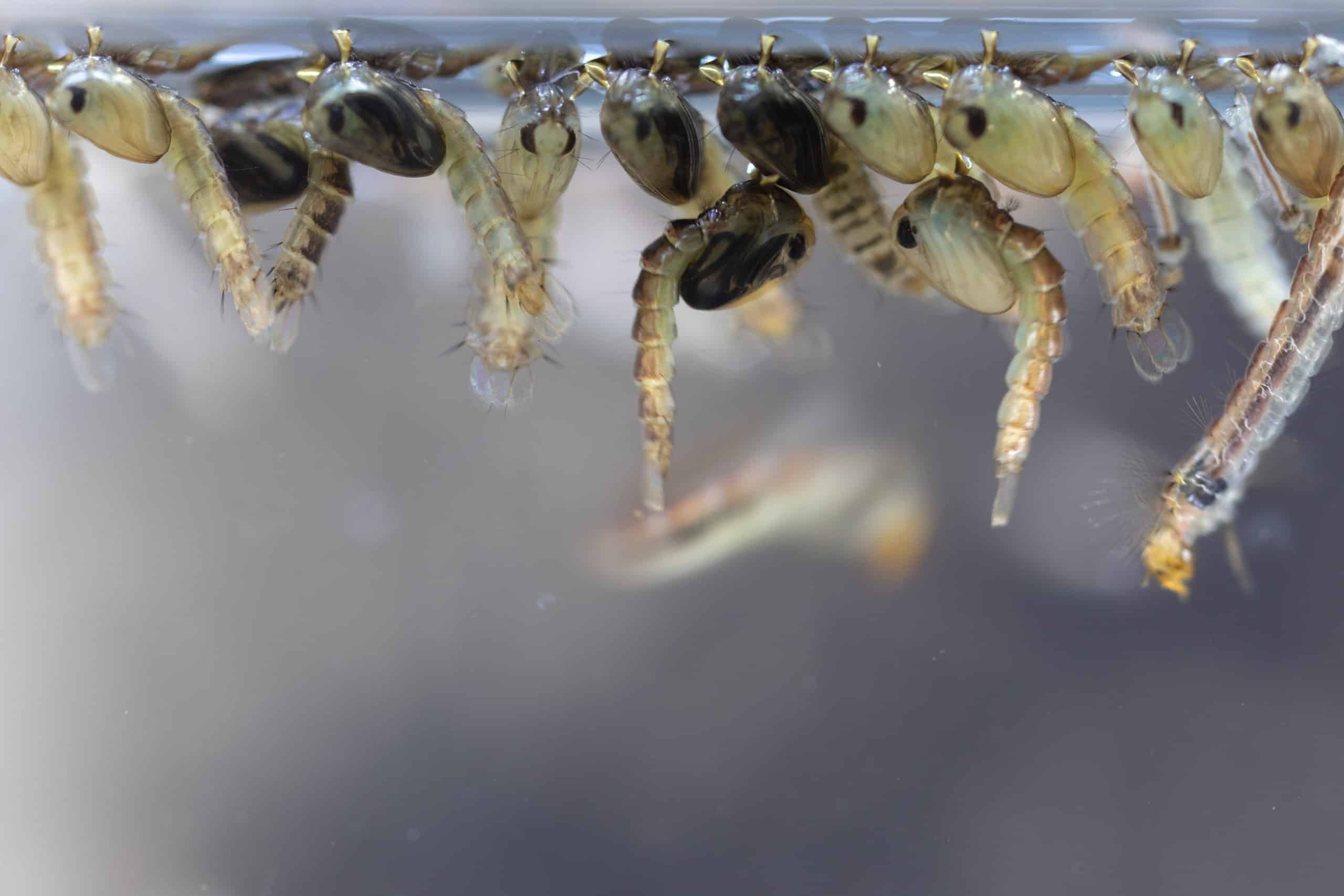Life Cycles of Mosquitos
Life Cycles of Mosquitos
Mosquitos 101
Mosquitos have been plaguing this planet all the way back to prehistoric times. Since then, these resilient bloodsuckers have become infamous murderers due to their ability to pass fatal diseases on a massive scale, and the CDC has even called them the “World’s Deadliest Animal.” There are an estimated 3,200 different species of mosquitoes alive on Earth today, 174 of which can be found in the United States. Unfortunately, the Chicagoland area was recently ranked 4th in the United States for the most mosquito complaints. With such a high population of mosquitos in our area, it can be helpful to understand how these insects develop and how to avoid the risk of your yard becoming a breeding zone for these pests. 
Eggs
Most species of mosquitos go through 4 life stages, each of which can vary in duration depending on the particular species. Eggs, the first stage, are laid in still sources of water. Some species lay their eggs one by one, while others produce clumped eggs that form rafts, floating at the surface of the water. Typically, these eggs hatch within 48 hours, but some can wait up to 8 months before hatching in order to withstand the frigid winter months. 
Larva
Mosquito larvae emerge from their eggs after being submerged in water. They remain under the water while they continue to grow and mature, molting three different times. Surprisingly, while larvae live underwater, they require air to breathe and use a specialized internal breathing system that operates by the larvae hanging upside down with their rears breaching the surface. These newborn insects feed on a variety of microorganisms within the water which provides them with the necessary nutrients to grow larger. When the larvae begin to undergo a 4th molt, they emerge in their third stage as pupae. 
Pupa
During this stage of development, the adolescent mosquitos remain in a somewhat dormant state. They rest and do not feed as they undergo the complex progression into their adult forms. On average, this process takes about two days before the pupae emerge from their skin (similar to a butterfly emerging from its cocoon) and breach the surface of their watery nursery as full grown adults. 
Adults
Male mosquitos are smaller in stature compared to their female counterparts, dine solely on the nectar of plants (not blood), and have furry antennas extending forward from their heads. These antennas are actually used to pick up on the infamous buzzing that females make as they fly, allowing them to hone-in on mates. Once a female has mated, she begins to seek out victims for blood meals. This consumption of blood actually has little to do with a simple diet preference and everything to do with procreation. In order to produce their eggs, females require a high dose of protein and iron, which are both found in high concentrations in human blood. Female mosquitos lay on average between 50-500 eggs at a time and can produce up to 10 broods in a lifetime. 
Don’t Let Your Yard Become a Mosquito Nursery!
Due to the potential dangers that coincide with mosquito bites it is important to employ preventative measures to protect yourself and your family. Here are some of the ways that you can help reduce your chances of mosquitos breeding in your yard:
- Keep gutters free of debris and trash so stagnant water does not accumulate
- Make sure bird baths, pet water bowls, and other outside water is changed regularly
- Do not overflow flowerpots with water
- Trim back excessive foliage to avoid densely shaded areas
- Ensure that drains are not blocked
- Add some plants to your garden that are natural deterrents for mosquitos such as lavender, basil, marigolds, mint, and citronella grass
At Pointe Pest Control, we also offer effective mosquito spraying to help safeguard your home and yard from these dangerous bloodsuckers. Your local technician will do a complete treatment around your home and even identify and eliminate potential nesting areas. We want you to be able to enjoy warm days in your yard without worrying about these nasty pests.

Citations
Chicago Ranks 4th in US for Mosquito Complaints, Pest Control Company Says (2019) NBC Chicago. NBC Universal Media LLC. Available at: https://www.nbcchicago.com/news/local/chicago-mosquitoes-west-nile-orkin-ranking/78801/ (Accessed: April 5, 2021).
How Mosquitos Got Their Taste for Human Blood – What it Means for the Future (2020) SciTech Daily. Cell Press. Available at: https://scitechdaily.com/how-mosquitoes-got-their-taste-for-human-blood-what-it-means-for-the-future/ (Accessed: September 2020).
Hughes, V. (2008) Did the Dinosaurs Bug Out?, The Smithsonian Magazine. The Smithsonian Institute. Available at: https://www.smithsonianmag.com/science-nature/did-the-dinosaurs-bug-out-180940839/ (Accessed: October 2020).
Life Cycles (no date) The American Mosquito Control Association. Advocacy & Management Group Inc. Available at: https://www.mosquito.org/page/lifecycle (Accessed: April 2021).
“Mosquito Life Cycle” (no date). The CDC Department of Health and Human Services, National Center for Emerging and Zoonotic Infections Diseases Division of Vector-Borne Diseases.
Mosquitos (2019) National Geographic. National Geographic Partners. Available at: https://www.nationalgeographic.com/animals/invertebrates/group/mosquitos/ (Accessed: April 2020).
Request a Free Quote Today
(We do not share your data with anybody, and only use it for its intended purpose)


